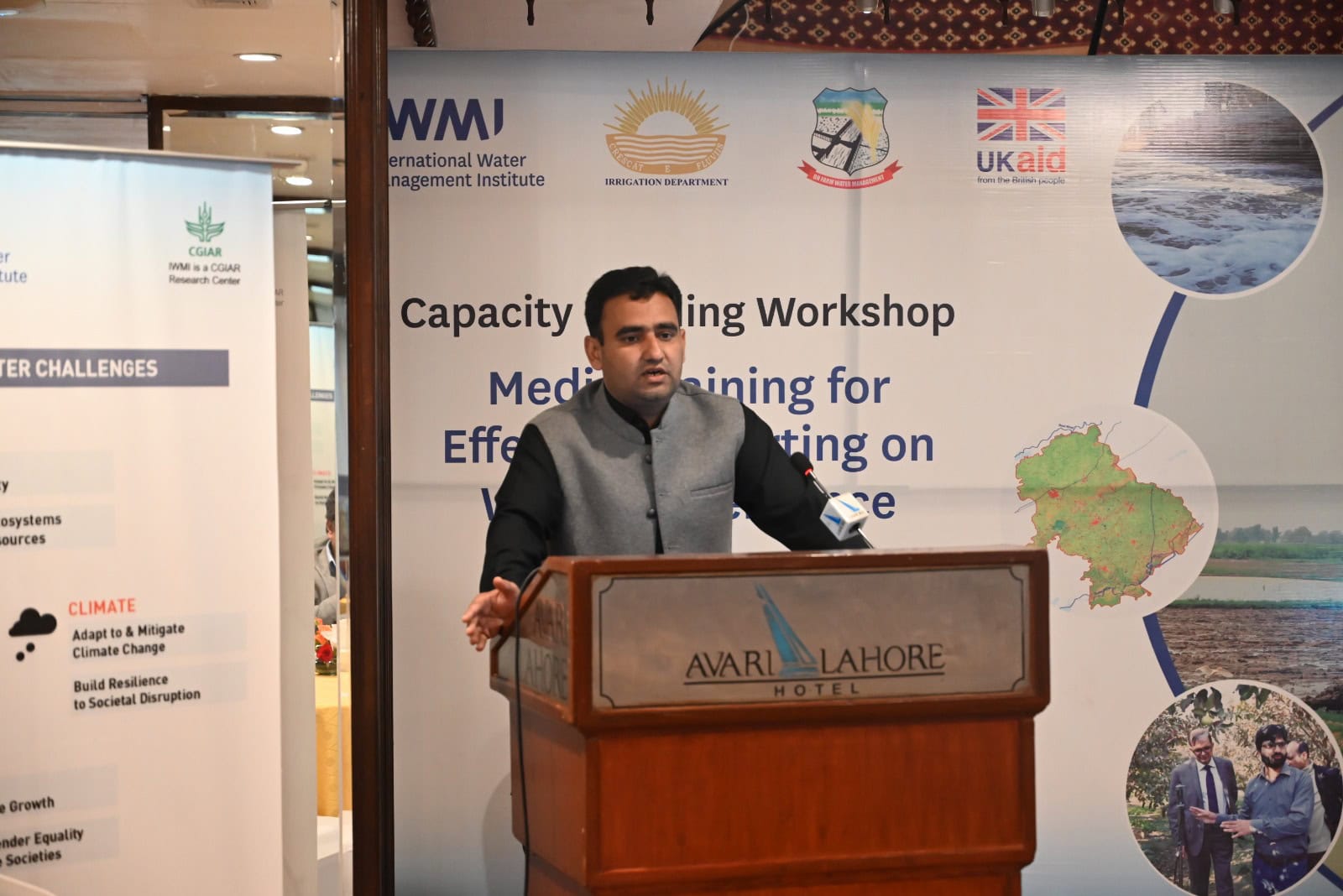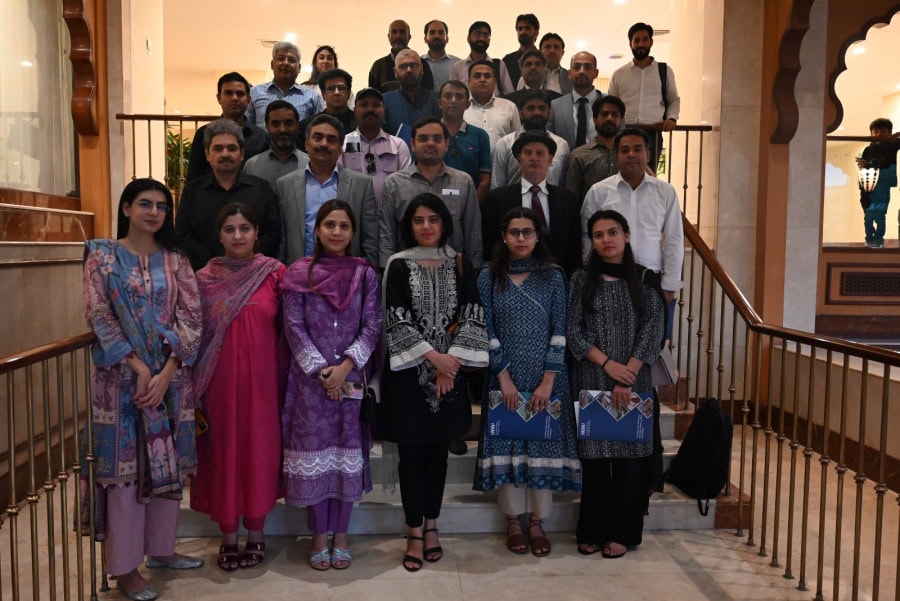They expressed these views in a media workshop held under the aegis of the International Water Management Institute, IWMI, Pakistan. The workshop was organized for effective reporting on water governance, under the UK Aid-funded Water Resource Accountability in Pakistan, WRAP.
The basic objective of the event was to sensitize print, electronic and digital media journalists on water governance in Pakistan. The speakers highlighted the importance of water measurement for effective water governance and how improved water resource management can help to ensure the availability of water for different sectors, especially agriculture and industry.
According to Dr Mohsin Hafeez, Country Representative – Pakistan, and Team Leader of the WRAP Programme Component 1: CRS-IWaG, “IWMI Pakistan is working on various water-related reforms through the UK Aid-funded programme, such as water accounting and water resources assessment, Data as a Service, DaaS, water allocation systems, groundwater management information system, and irrigation demand management, among others.
These reforms will improve water governance in the Indus Basin to support the implementation of national policies, water and climate change, as well as promote sustainable use of water in Punjab to support the implementation of Punjab Water Act 2019.”, Dr Muhammad Javed, Director – Strategic Planning and Reform Unit, Punjab Irrigation Department, PID, gave an overview of Punjab Water Act 2019 and how the WRAP Programme Component 1: CRS-IwaG is contributing towards its implementation.

Dr Umar Waqas Chatha, International Researcher shared that Chameleon Soil Water Sensor technology, which is the need of the hour for farmers in our country. Farmers can use this sensor technology to monitor the real-time soil water availability to crops, and this will not only help them to optimize irrigation and fertilization practices but also results in higher crop yields, he added.
The Irrigation Specialist further mentioned that the sensor continuously observes the soil moisture at different depths and help the farmer make informed management decision on irrigating the crops timely. “As a result, the sensor helps to improve water use efficiency and it will be a vital step to raise farm productivity by conserving water,” he maintained.
When asked about tackling water scarcity issues in crisis-hit Pakistan, Dr Umer said farmers and other relevant stakeholders need to be informed about the latest technologies that are being used in developed countries.
He stressed focusing on automated groundwater divers to monitor real-time groundwater levels and other important water quality parameters of the aquifer as it helps in generating evidence of changes in groundwater levels and water quality over time.
“The dataset collected from the divers will be used to support water resource management decisions and groundwater remediation efforts,” Chatha added.
Engr. Hafiz Qaisar Yasin, Director, Headquarters, On Farm Water Management, OFWM, Punjab, informed the participants of the need to improve water governance for better agricultural productivity in Punjab. He emphasized various policies on water governance and highlighted the need for good governance at the farm level. He also emphasized undertaking water budgeting and accounting at the farm level to strengthen water governance and promote Irrigation Demand Management, IDM, /Nature-Based Solutions.
He also stressed communication, awareness raising, and capacity development activities, Experts from IWMI Pakistan, including Dr Abdur Rehman Cheema, Regional Researcher – Water Governance and Institutional Specialist, Dr Muhammad Arshad, Researcher – Integrated Water Resources Management Specialist, and Kanwal Waqar, Researcher – Gender and Youth Specialist, briefed the participants on water governance reforms being piloted through the WRAP Programme Component 1: CRS-IWaG, the instrumentation deployed in pilot district Okara for effective water management, mechanisms for better water allocation, and gender-inclusive water planning.
Engr. Dr Jehanzeb Masud Cheema, Researcher – Water Resources Management, IWMI Pakistan, summarized the key takeaways and informed the participants that efficient water management ensures water security. To achieve this objective, which will contribute towards informed decision-making.
He added that this media workshop would enable journalists to better report on water governance issues and advocate for the sustainable use of water resources among various stakeholders and the public. Moreover, IWMI Pakistan will arrange future capacity-building workshops and media exposure visits to the pilot district Okara in the next financial year of the WRAP Programme Component 1: CRS-IWaG.









